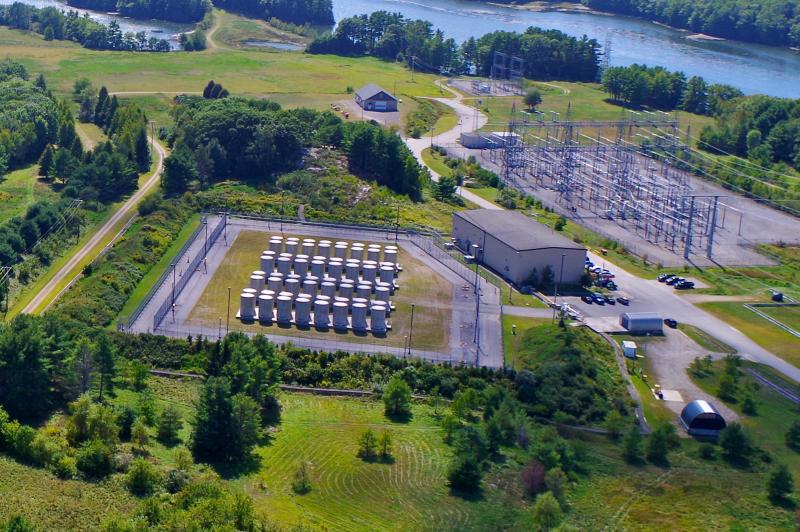Augusta Civic Center or on Zoom is the place to be at 10 a.m. Thursday, Oct. 19 to witness the state’s consideration of Wiscasset’s appeal of Maine Yankee’s tax exemption for a chunk of its local property. At stake is $1.6 million in taxes if $93,820,000 of the business’s $184,318,952 property tax valuation is exempt, Town Manager Dennis Simmons said.
In documents Simmons provided Oct. 11 to help inform the public, staff for the state board of environmental protection (BEP) recommend the board uphold Department of Environmental Protection (DEP) Commissioner Melanie Loyzim’s March 31 decision to exempt from taxation the canisters that hold spent nuclear fuel, the casks that hold the canisters, and vent screens, storage pads, fill and drainage systems. The canisters’ main purpose is pollution control, qualifying the equipment for exemption, Loyzim’s decision states.
How likely is the town’s appeal to succeed? Responding to Wiscasset Newspaper’s email questions, Simmons noted the BEP staff’s recommendation and said: “While we are hopeful the Board will reverse the decision we are prepared for the decision to be upheld.”
An Oct. 11 BEP email told the parties the hearing will be part of BEP’s Oct. 19 meeting. Forwarding that email to attorney Peter Murray and Simmons, another of the town’s attorneys in the matter, Sarah McDaniel, reminded them the hearing is “not a ‘testimonial’ hearing with new evidence or witnesses. It is an occasion for us to present our arguments to the Board and answer questions while they deliberate.”
View the meeting live at https://mainestate.zoom.us/j/85065721226 or listen by phone: 1-646-876-9923, webinar ID: 850 6572 1226.
Responding to a request for comment, Maine Yankee spokesman Eric Howes said via email Oct. 11, “At (the) hearing, Maine Yankee will be prepared to provide information and answer questions BEP members may have about the pollution control equipment property tax exemption certification approved by the DEP at the end of March.”
Opposing Maine Yankee’s request to tax-exempt the equipment, McDaniel, for the town, wrote DEP last February. She argued those canisters, known as transportable storage canisters (TSCs), were installed mainly for storing and transporting the waste, not industrial pollution control.
Opposing Wiscasset’s arguments, a July 6 Maine Yankee document calls the DEP’s March 31 decision well-reasoned. The tax-exempt equipment is “highly engineered to ensure radionuclides are confined during both normal and accident conditions.”
Maine Yankee argues the town’s point about the equipment being for storage “is like saying the primary purpose of a bank vault is to store money, not to protect it from theft. If the primary purpose ... were simply to store nuclear waste, that function could be accomplished by burying the waste in a hole in the ground or putting it on a shelf in a warehouse,” Maine Yankee attorneys Brian M. Rayback and Georgia M. Bolduc write.






























